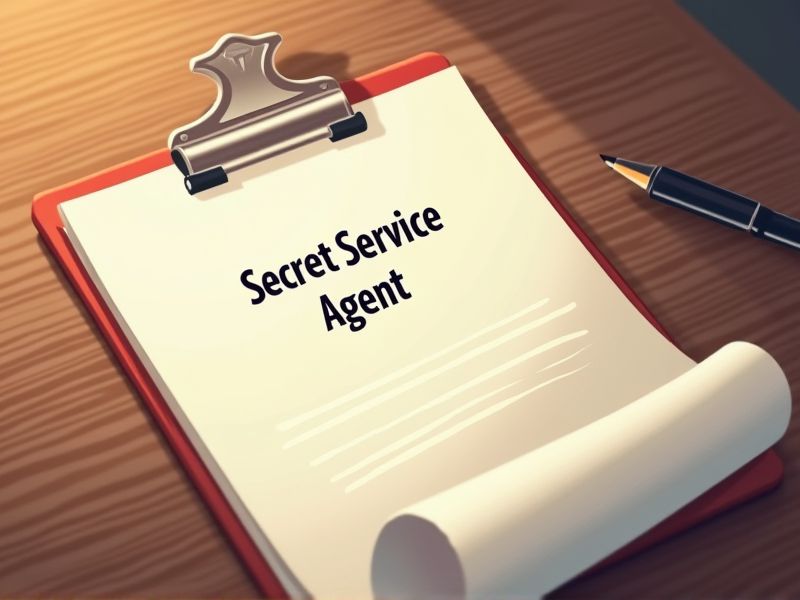
Secret Service Agents require specific certifications to effectively perform their duties in high-stakes environments. Specialized certifications ensure these agents possess the necessary skills in areas like protection protocols, investigative techniques, and emergency response. Obtaining these credentials also helps agents stay updated with the latest technologies and methodologies critical for safeguarding national security. Here are key certifications you might need to become a Secret Service Agent.
U.S. Secret Service Special Agent Training Certification
Completion of the U.S. Secret Service Special Agent Training Certification ensures agents are equipped with the necessary skills to effectively protect national leaders. The rigorous program enhances their ability to detect and respond to threats, thereby maintaining national security. It establishes a standardized level of proficiency, allowing for consistent performance across various security scenarios. Achieving certification is crucial for upholding the agency's reputation for excellence and dependability in high-stakes situations.
Federal Law Enforcement Training Center (FLETC) Certification
FLETC certification provides Secret Service agents with standardized training that ensures consistent and high-quality skills across the agency. This certification prepares agents to effectively handle complex security scenarios and protect national leadership. Training at FLETC equips agents with critical skills in areas like investigation, firearms, and emergency response. Certification is often a prerequisite for federal law enforcement roles, ensuring agents meet national standards.
Firearms Proficiency Certification
Firearms Proficiency Certification is essential for Secret Service Agents to ensure they can effectively respond to threats, maintaining their primary duty of protecting high-profile individuals. Standardized training through this certification helps reduce the risk of unintentional harm and enhances the agent's ability to make quick, informed decisions during critical incidents. Regular proficiency assessments uphold a consistent level of skill and reflexes, vital for adapting to varying security scenarios. The certification also promotes accountability, reinforcing the professional standards expected by both the agency and the public.
Defensive Tactics Certification
Secret Service Agents face high-risk situations where defensive tactics can mean the difference between life and death. Proper certification ensures agents are equipped with the latest strategies and techniques, enhancing their ability to protect themselves and others. Certification provides a standardized skill set that establishes operational consistency across the agency. Maintaining a high level of readiness through ongoing training and certification minimizes potential liabilities and enhances public trust in the agency's capabilities.
Emergency Medical Technician (EMT) Certification
The Secret Service often faces high-stakes situations that may include medical emergencies, requiring agents to provide immediate care. EMT certification equips agents with essential lifesaving skills, enhancing response capabilities. The training ensures agents can stabilize individuals in critical conditions until advanced medical help arrives. Knowledge from EMT certification also aids in effective risk assessment and situational preparedness during protective missions.
Certified Protection Professional (CPP)
The Certified Protection Professional (CPP) designation ensures a standardized level of knowledge in security management, which enhances a Secret Service agent's efficiency in protective services. Achieving CPP credentials validates an agent's skills in risk management, critical incident management, and security protocols, which are essential for effectively mitigating threats. The certification further develops an agent's strategic planning and analytical capabilities, crucial for assessing complex security environments. By adhering to industry best practices outlined in CPP, Secret Service agents enhance their credibility and operational excellence in protective duties.
Certified Fraud Examiner (CFE)
The Secret Service Agent's role in safeguarding financial infrastructure requires expertise in detecting and preventing fraudulent activities, which is granted through the Certified Fraud Examiner (CFE) credential. The CFE provides comprehensive knowledge of financial crime schemes, enhancing an agent's capability to investigate complex fraud cases effectively. With a CFE, Secret Service Agents can implement robust fraud prevention strategies, reducing potential economic threats. In-depth understanding of legal elements of fraud through CFE training aids in navigating judicial proceedings and securing successful prosecutions.
Cybersecurity Certification (e.g., CompTIA Security+)
A Secret Service Agent is often tasked with protecting sensitive information, and cybersecurity certification, like CompTIA Security+, equips them with essential knowledge in safeguarding this data against cyber threats. Cybersecurity certifications provide a standardized understanding of potential vulnerabilities and defense strategies, crucial for an agent responsible for national security. A well-prepared agent can preemptively identify and mitigate cybersecurity risks, thereby reducing the probability of data breaches or cyber-attacks. Having such certification can improve operational effectiveness in technological environments where digital threats are prevalent and constantly evolving.
Counterfeit Currency Detection Certification
Counterfeit currency detection certification equips Secret Service agents with the specialized skills needed to identify fake money efficiently, reducing the circulation of counterfeit notes. This knowledge supports the agency's core mission of safeguarding the financial integrity of the nation, directly impacting the economy. Without proper certification, agents may lack the updated techniques and tools necessary to combat increasingly sophisticated counterfeiting methods. Certification ensures a standardized understanding across the agency, promoting cohesive and effective operations.
Crisis Negotiation Certification
Crisis negotiation certification equips Secret Service agents with specialized skills to de-escalate high-pressure situations effectively. Agents learn strategic communication techniques that can be vital during hostage scenarios or potential threats against protectees. The certification ensures agents can assess and manage volatile environments, reducing the likelihood of violence. Training strengthens decision-making abilities, allowing agents to prioritize safety and successful conflict resolution in critical missions.
Summary
When you see a Secret Service Agent obtaining certifications, expect enhanced skills in specialized areas such as cybersecurity and threat assessment. These certifications often lead to improved operational efficiency, better decision-making capabilities, and refined investigative techniques. You'll notice that agents become more effective in protecting high-profile individuals and critical infrastructures. This ultimately contributes to greater national security and trust in their protective services.
